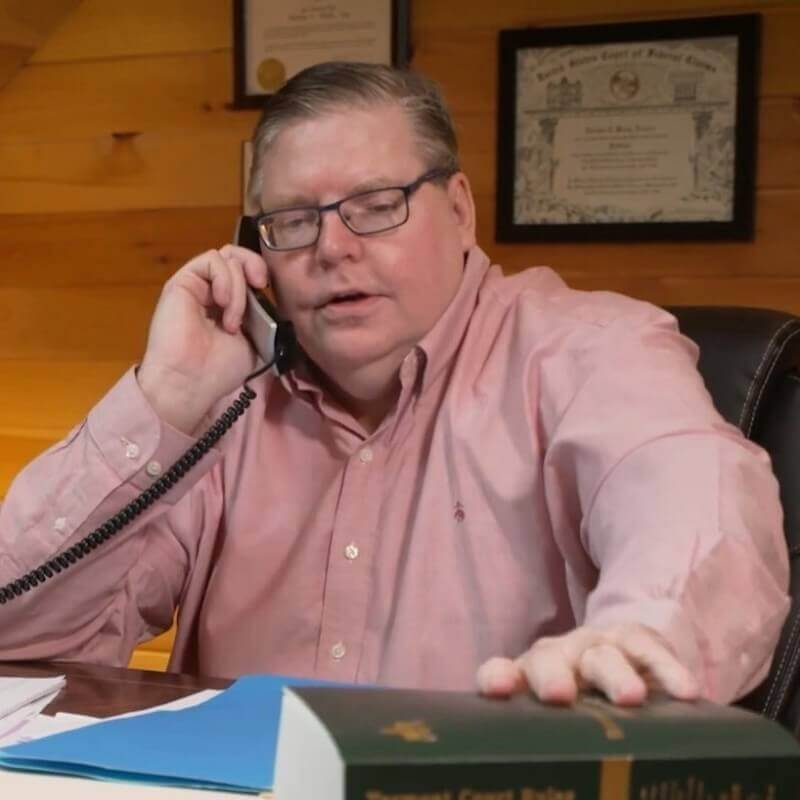Nursing Home
Litigation

The True Measure of Any Society
Writer and recipient of the Nobel Prize for literature, Pearl Buck wrote: “Our society must make it right and possible for old people not to fear the young or be deserted by them, for the test of a civilization is the way that it cares for its helpless members.”
Vermont Attorney General T.J. Donovan, stated after a recent investigation:
“We will not tolerate substandard care in Vermont. We will continue to protect the most vulnerable and advocate for improved quality of care for Vermonters.”
Humaneness, or the human capacity of any society, may be judged by how it cares for its most vulnerable populations. Sadly, in their so-called golden years, the oldest, wisest and most revered members of our community are all too frequently subject to substandard care and unconscionable abuse in the very institutions that purport to care for them and who do so at great expense.
Placing loved ones in a nursing home is a challenging decision that is made more difficult when understood in the context of the prevalence of nursing home abuse. Profit before people, inadequate staffing, and poorly trained caregivers make the idea of leaving a parent or relative alone in such an uncaring place a painful consideration, but is often the only alternative available
A congressional report has found that over 30 percent of the nursing homes in the United States were cited for an abuse violation that caused harm. Nearly half of the violations were serious enough to cause actual harm or placed residents at risk of death or serious injury. Representative Henry Waxman said, the idea that residents in nursing homes live in fear of abuse and not able to communicate it to others and that the nursing homes aren't watching enough to catch this sort of thing just seems to me is unconscionable. He also reflected that a great majority of long-term care in our nation is excellent, yet still went on to call for additional federal funds and oversight of the industry to guarantee that America’s elderly spend their final years in a safe nursing home, not a House of Horrors.
What Is Nursing Home Neglect?
The Administration on Aging, in its instructions to long-term care facilities, defines abuse as “the willful infliction of injury, unreasonable confinement, intimidation or cruel punishment with resulting physical harm, pain, or mental anguish or deprivation by a person, including a caregiver, of goods or services that are necessary to avoid physical harm, mental anguish, or mental illness” The Centers for Disease Control and Prevention states that any actions or inactions that fail to meet an elderly person’s basic needs in a nursing home rises to the level of nursing home negligence.
There is evidence to suggest that nursing home abuse may be nearly as widespread as child abuse in the U.S. Elderly who live in residential settings that offer long-term care are at increased risk from abuse and negligence. They are particularly vulnerable because they are dependent on others and often suffer from chronic disease leading to physical and cognitive limitations.
Many are either unable to report abuse or neglect or are fearful that such reporting may lead to retaliation or adversely affect their lives due to their dependence on the facility for their food, medicine, medical and dental care, shelter and for assistance with virtually all daily requirements necessary for survival.
Covid-19 Pandemic Related Neglect
The organization, Human Rights Watch, has stated that potential neglect and prolonged isolation may have caused serious harm to many people in nursing homes in the country during the Covid-19 pandemic. Staffing shortages continue to be a significant problem during the pandemic. The absence of immediate family and visits from friends, many of whom nursing homes often rely upon to assist caregivers with essential care, has been cited as contributing to elder neglect.
Physical nursing home negligence can result in serious injuries or death, but emotional nursing home negligence can also cause harm. Failure to provide for a resident’s emotional needs, such as allowing them to visit with friends and family, can lead to emotional neglect, which may result in serious emotional suffering in an elderly resident, as many arrive in a home with previously existing cognitive disorders.
Signs of Nursing Home Negligence
According to the National Institute on Aging, warning signs of nursing home negligence may include the following:
- Weight loss or gain
- Dehydration or malnutrition
- Infections or bedsores with unexplained causes
- Sudden changes in personality or behavior or lack of personal hygiene
- Serious medical complications from failure to administer medications correctly
Why File Nursing Home Abuse Claims?
The sole reason for placing a beloved family member into a nursing home is to ensure that they receive the proper care and supervision they need in order to maintain a healthy quality of life. When a nursing home fails to provide this care and supervision, they are negligent when they have failed to appropriately care for the elderly residents in their care. Reporting the abuse of elders is an important step in holding nursing homes and perpetrators accountable. This significant action can initiate constructive change and serve to protect other families from needless suffering.
Nursing homes that receive Medicaid or Medicare funds are required to adhere to federal regulations, which mandate that all residents have “the right to be free from verbal, sexual, physical, and mental abuse, corporal punishment, and involuntary seclusion.” Retaining a lawyer to file your nursing home abuse lawsuit holds the abusers accountable for their acts and blocks federal funding to facilities that violate the rules for federal standard of care.
Please call TCB Law today 802-775-3229 to arrange for a free consultation to discuss your nursing home abuse and neglect questions and concerns. You pay nothing unless we obtain compensation for you and we welcome the opportunity to help you.
